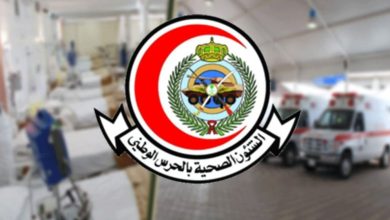School Feeding Officer (NOA)

WFP celebrates and embraces diversity. It is committed to the principle of equal employment opportunity for all its employees and encourages qualified candidates to apply irrespective of race, colour, national origin, ethnic or social background, genetic information, gender, gender identity and/or expression, sexual orientation, religion or belief, HIV status, physical or mental disability.
Job Title : School Feeding Officer (NOA)
Type of Contract : Fixed Term
Grade : NOA
Unit/Division : Programme
Duty Station (City, Country): Port-au-Prince, Haiti
Duration of assignment: 12 months
ORGANIZATIONAL The United Nations World Food Programme (WFP) is the frontline UN
CONTEXT: agency in the fight against hunger. Since its creation in 1963, WFP staff around the world have worked tirelessly to eradicate hunger. Each year, WFP feeds more than 90 million people in over 70 countries. Recently, WFP has been diversifying its portfolio along the humanitarian and development spectrum with preparedness and immediate response emergency operations; recovery and resilience activities, including the implementation of capacity strengthening for social safety nets, school meals, nutrition- sensitive activities as well as progressive local purchases; and the provision of emergency logistics, telecommunications and aviation services.
In Haiti, food insecurity is driven by the poor performance of the agricultural sector combined with the strong dependence on imports of food products (more than half of the food products present on the market) in particular for rice (83%). Product prices are largely influenced by logistical challenges, high production costs, precarious market structures and high inflation rates in recent years.
According to the latest IPC analysis (September 2022 – February 2023) published in October 2022, approximately one in two households in Haiti is acutely food insecure, with more than 1.7 million people in the emergency phase (IPC4). This is an increase of about 500,000 people in IPC4 compared to the previous analysis. Similarly, 19,000 people are in IPC Phase 5 (Disaster), which is a first for Haiti, and for the Americas since the IPC began.
These worrying results are largely linked to [1] the political crisis that has taken hold in the country since July 2018 which has led it into an economic and social crisis, [2] to an agro-climatic crisis with significant pockets of drought in the country causing a significant decrease in agricultural production. In addition, the COVID-19 pandemic has contributed to the increase in food insecurity. The growing insecurity and the blocking of certain access points to the country, in particular since June 2021 the road leading to the Great South, have worsened the indicators of food insecurity.
In Autumn 2022 the Country further endured 2 months of heavy socioeconomic turmoil and blockade of most imported goods, but especially fuel, leading to a de-facto paralysis of the entire Country with continued and protracted consequences on inflation, fuel and food availability until today.
Thus, the World Food Programme in Haiti has defined its strategy to fight hunger in the Country Strategic Plan (CSP 2019-2023), which includes activities related to emergency food assistance to populations affected by a shock, the establishment of social nets oriented towards nutrition, capacity building, school feeding and livelihoods of small producers and their resilience to climate change, and capacity building of national and local actors for the fight against hunger. A new CSP exercise has been taking place to determine the 2024-2028 plan and since the Autumn events, WFP Haiti CO declared L3 corporative scale-up and keeps growing its targets and operations.
In Haiti, school meals are an important social safety net in fighting malnutrition. It complements the government’s efforts to guarantee basic education for all children, increasing enrolment and retention rates, as well as preempting short-term hunger that negatively impacts their learning abilities. WFP and its partners provide assistance to the most vulnerable populations in order to achieve the Zero Hunger goal. WFP is involved in the implementation of a school feeding programme, which is the largest food safety net in the country, as well as in resilience, social protection, nutrition and emergency preparedness and response activities.
In Haiti, WFP is working with the government in all 10 departments of Haiti to enable a school feeding programme in line with the government's policy directions in the sector. In 2022-2023 WFP will assist more than 460,000 children with a daily nutritious meal. For most of these children, the meal provided by the canteen remains their only meal of the day and an incentive to attend school. Therefore, schools become opportunities for dialogue not only with the children but with the whole community.
WFP Haiti is uniquely positioned to support a sustainable school feeding programme in Haiti. WFP possesses a strong operational footprint and field presence in Haiti, with the capability to reach Haiti’s most inaccessible schools throughout the school year and during crises.
This ensures the reliable provision of school meals, and a predictable safety net to the targeted children and communities. WFP is also best positioned as the lead government school feeding partner at the national and local level. In 2014-15, WFP Haiti took the lead in partnering with the government and coordinated with all relevant stakeholders to initiate a consultative process which resulted in the decision to develop the following: the first national school feeding policy, the establishment of a government-led School Feeding Task Force, and the organisation of a national SABER workshop (in August 2015). Another SABER workshop was organized in the first quarter of 2022 to update the national school feeding policy and to understand the gaps and ways forward.
Job holders are likely to be working under the close support and guidance of a more experienced professional staff member receiving guidance and regular feedback on work performed. They are typically involved in programme or policy activities or similar nature and analytical work of limited complexity.
JOB PURPOSE: To provide support to School Feeding policy and programme activities that effectively meet food assistance needs.
KEY ACCOUNTABILITIES (not all-inclusive, within delegated authority):
- Contribute towards the development of School Feeding projects, plans and processes, ensuring alignment with wider programme policies and guidance.
- Provide project management support to School Feeding programmes and projects, ensuring a coordinated approach with wider programmes that complies with WFP standards and procedures.
- Follow data gathering and monitoring systems ensuring that rigorous quality standards are maintained.
- Research and analyse policy and operational issues to support senior colleagues in the development of policies, programmes and activities relevant to School Feeding.
- Contribute to the preparation of accurate and timely reporting on School Feeding programmes and activities that enable informed decision making and consistency of information presented to stakeholders.
- Liaise with internal counterparts to ensure effective collaboration, monitor ongoing
School Feeding projects.
- Support the identification, development and management of potential partnerships to collaborative working leading to improved food assistance packages.
- Support the capacity building of WFP staff, partners and national government to prepare for and respond to food assistance needs, e.g. through project management support of learning initiatives.
- Provide guidance to support staff, acting as a point of referral and assisting them with analysis and queries.
- Other as required.
WFP LEADERSHIP FRAMEWORK: COMMON STANDARDS OF BEHAVIOUR
|
Upholds WFP values, principles, and standards |
Respects others and values diversity |
Stays focused and Demonstrates calm under humility and a pressure willingness to learn |
||
|
Leads by Example with Integrity |
Demonstrates and encourages others to uphold the WFP values, principles and standards |
Values diversity using respectful and inclusive language, and encourages others to do the same |
Stays focused and Shows humility and a calm when under willingness to learn and pressure and share knowledge, encourages others frequently seeking and to do the same acting on feedback, and taking up opportunities to develop |
|
|
Delivers results for maximum impact |
Delegates appropriately |
Adapts readily to change |
||
|
Drives Results and Delivers on Commitments |
Holds self and/or others accountable for the delivery of results |
Delivers results against delegated tasks and seeks guidance and support where needed |
Responds readily to change adjusting work as needed |
|
|
Is inclusive and collaborative Promotes inclusive teamwork and psychological safety by sharing ideas and openly raising issues |
Gives timely and constructive feedback Supports development for others by giving timely and constructive feedback |
Builds and shares new perspectives Listens attentively to others to capture, learn, build and share new perspectives |
||
|
Fosters Inclusive and Collaborative |
||||
|
Communicates and fulfils WFP’s vision |
Embraces curiosity and new ways of doing things |
Analyses and evaluates data |
Considers the impact of decisions |
|
|
Applies Strategic Thinking |
Fulfils WFP’s vision and is able to explain how their objectives support the vision |
Demonstrates curiosity, and proposes new ways of doing things when relevant |
Gathers data and shares knowledge to inform team decision making |
Implements decisions and asks questions to understand the impact for wider objectives |
|
Builds and Maintains Sustainable Partnerships |
Builds partnerships Builds partnerships by seeking out opportunities to work with others |
Collaborates to deliver common objectives Collaborates with partners by sharing information and working together to deliver common goals |
FUNCTIONAL CAPABILITIES:
|
Capability Name |
Description of the behaviour expected for the proficiency level |
|
Programme Lifecycle & Food Assistance |
Demonstrates ability to identify key variables and contextual factors that affect food assistance problems and programmes throughout the lifecycle to inform quality programme design or re-design. |
|
Transfer Modalities (Food, Cash, Voucher) |
Demonstrates ability to analyse and consolidate quantitative and qualitative information from different sources (e.g., market studies) to inform transfer modality selection and programme development. |
|
Broad Knowledge of Specialized areas (i.e. Nutrition, VAM, etc.) |
Demonstrates the ability to interpret basic data in the context of WFP specialised fields to contribute to technical programme design, implementation and monitoring. |
|
Emergency Programming |
Displays capacity to provide inputs into the development, implementation and realignment of high quality emergency programmes. |
|
Strategic Policy Engagement w/ Government |
Develops thorough recommendations using multiple inputs (e.g., government counsel, research, own experience) to strengthen national or subnational entities and government owned food and nutrition security programmes. |
DESIRED EXPERIENCES FOR ENTRY INTO THE ROLE:
- Has gained experience in implementing School Feeding technical programs
- Has implemented School Feeding programmes and provided input into designing operations.
- Has provided input into School Feeding policy discussions and decisions.
- Has experience in difficult contexts and in different Departments of Haiti, inclusive remote and rural areas
STANDARD MINIMUM ACADEMIC QUALIFICATIONS:
Education: Advanced University degree in International Affairs, Economics,
Nutrition/Health, Agriculture, Environmental Science, Social Sciences or other field relevant to international development assistance, or First University Degree with additional years of related work experience and/or trainings/courses.
Language: Fluency in French and Kreole language.
Working knowledge of English
Knowledge of Spanish is an asset
Deadline : May 30,2023



